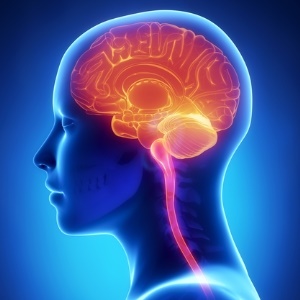
Menstrual cramps are often dismissed as a mere nuisance, but new research suggests the monthly misery may be altering women's brains.
Researchers in Taiwan used a type of brain scan known as 'optimised voxel-based morphometry' to analyse the anatomy of the brains of 32 young women who reported experiencing moderate to severe menstrual cramps on a regular basis for several years, and 32 young women who did not experience much menstrual pain.
The study
Even when they weren't experiencing pain, women who had reported having bad cramps had abnormalities in their gray matter (a type of brain tissue), said study author Dr Jen-Chuen Hsieh, a professor of neuroscience at the Institute of Brain Science at National Yang-Ming University in Taipei, Taiwan.
Read:
Those differences included abnormal decreases in volume in regions of the brain believed to be involved in pain processing, higher-level sensory processing and emotional regulation, as well as increases in regions involved in pain modulation and regulation of endocrine function.
Exactly how the changes in the brain could affect women's experience of pain is unknown, researchers said. But the brain abnormalities suggest that menstrual pain may have similarities with other chronic pain conditions in that over time, repeated bouts of excruciating aches make the brain unusually sensitive to pain - in effect, making the experience of pain worse.
"A long-term bombardment by peripheral pain can elicit plastic changes in the central brain as a reactive adaptation," Hsieh explained. "It can also be a crucial mechanism that perpetuates the 'chronification' of pain" - that is, a mechanism that can turn pain into a lingering affliction.
The study is published in the of PAIN.
'Not taken seriously'
Menstrual cramps, or pain in the lower abdomen that occurs when the uterus contracts during menstruation, is the most common gynaecological disorder in women of childbearing age, according to background information in the article.
Read: Natural PMS busters
Karen J. Berkley, a professor emeritus of neuroscience and psychology at Florida State University, said menstrual pain is too often not taken seriously.
"This is one of the first groups to call attention to menstrual cramps, the fact that the condition can have an impact on women's lives, and it's accompanied by changes in brain anatomy and function," Berkley said.
Previously, the Taiwanese team reported that women suffering from menstrual cramps also have differences in brain activity as seen by positron emission tomography, another type of brain scan.
"Taken together, those two studies point to the fact that this continual cyclical pain in women is not unimportant," Berkley said.
Read more:




 Publications
Publications
 Partners
Partners















